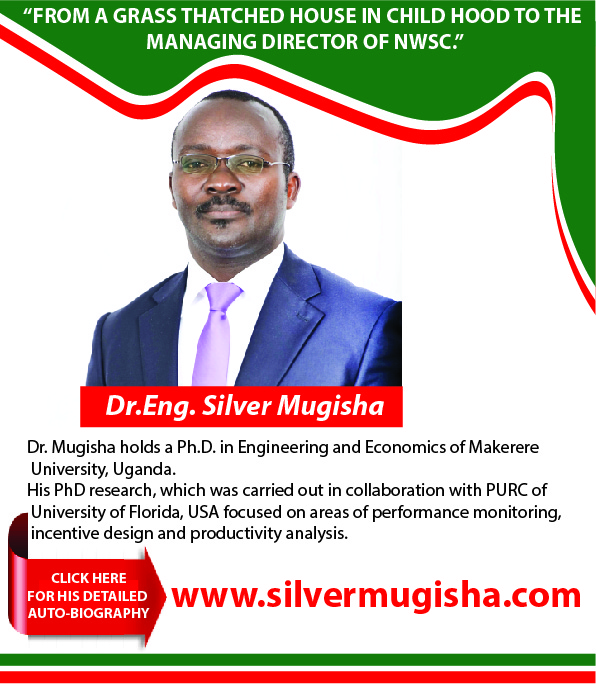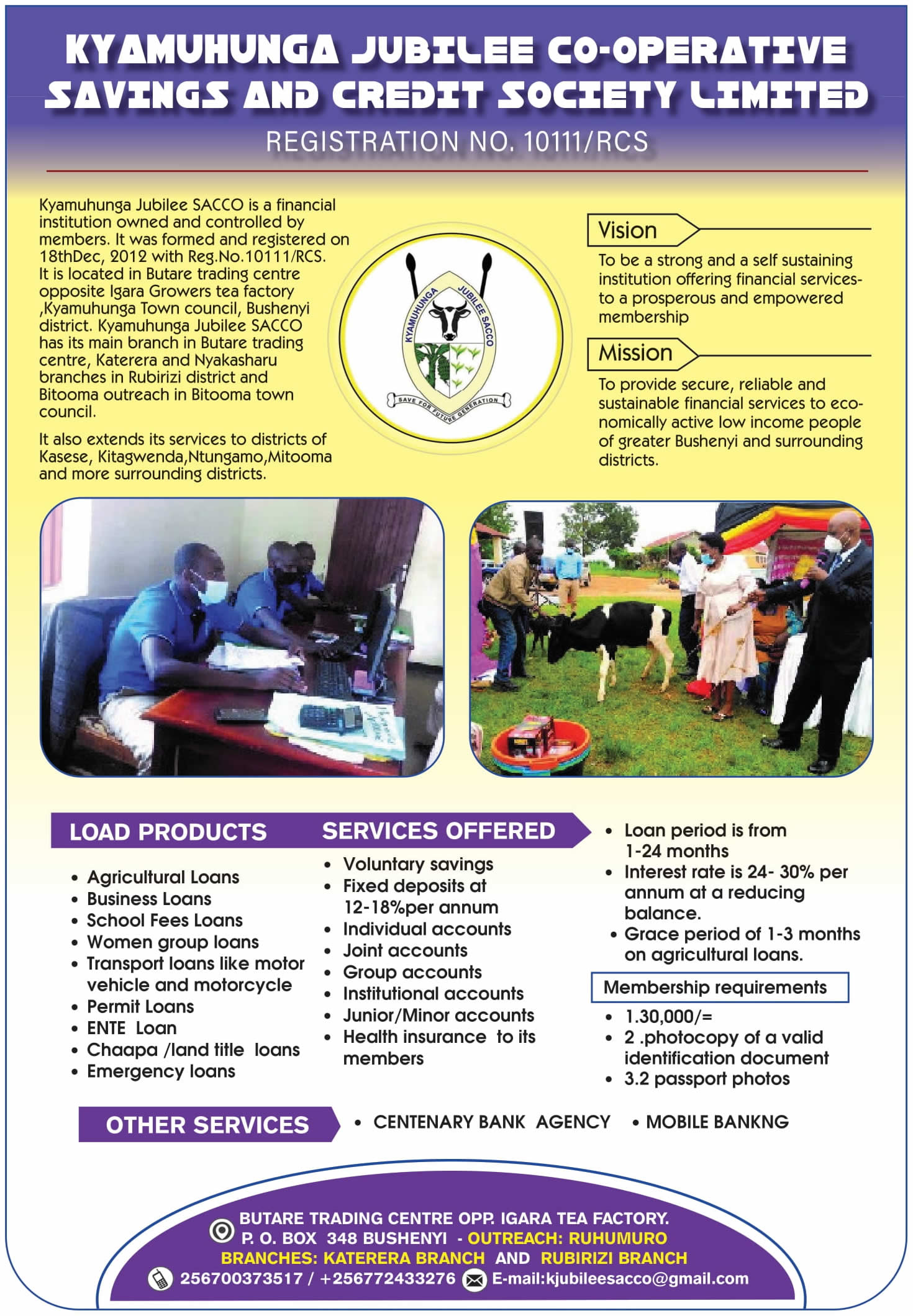OPINION:FREE DEBATE ON AGE LIMIT MUST BE ALLOWED
By Ayebazibwe Edgar.
Justice Mulenga’s lead judgment in the Supreme Court case of Charles Onyango Obbo and Andrew Mujuni Mwenda versus Attorney General Constitutional Appeal number 2 of 2002 is the most recent authoritative judgment on fundamental human rights on freedom of expression and speech which are religiously guarded under chapter four of the 1995 Constitution of Uganda.
Basically, freedom of expression is freedom to hold opinions and to receive and impart ideas and information without interference. The learned Justice further expounded that article 29(1) of the Constitution guarantees free speech and expression and also secures press freedom.
The age limit debate has not been birthed of recent, it was one of the controversial questions that were discussed at length by the constituent Assembly in 1994, and some still serving politicians maintain their positions on the issue as per the Hansard while some choose to differ from their own opinions.
Therefore, the resurrection of this debate was inevitable. Whereas the opposition in Uganda praised with thanksgiving the former WBS Tv journalist who allegedly assaulted a Member of Parliament on a public function over his position on the age limit debate, to them, such a person was a hero, a true patriotic, and a selfless citizen worth credit, I find this ridiculous
Extending protection of the freedom of expression to false statements does not necessarily defeat the objective of upholding the truth, because while truth and falsity are mutually exclusive, the purposes for protecting both are not. Therefore, the drafters of the 1995 constitution of Uganda in their wisdom foresaw a moment when people would have a sharp conflict in ideology hence granted space to such as their basic constitutional human right.
The African Charter on Human and Peoples’ Rights simply states in Article 9 that every individual shall have the right to express and disseminate his opinions within the law.However, in order to elaborate and expound on the nature, content and extent of the right provided for under Article 9″, the African Commission on Human and Peoples’ Rights in its 32nd Ordinary Session in October 2002, adopted the Declaration of Principles on Freedom of Expression in Africa, and recommended to the African States to guarantee the freedom thus “Freedom of expression and information, including the right to seek, receive and impart information and ideas, either orally, in writing or print, in the form of art, or through any other form of communication, including across frontiers, is a fundamental and inalienable human right and an indispensable component of democracy,everyone shall have an equal opportunity to exercise the right to freedom of expression and to access information without discrimination.”
In the International Covenant on Civil and Political Rights, Article 10 provides that everyone shall have the right to hold opinions without interference clause two further provides that everyone shall have the right to freedom of expression; this right shall include freedom to seek, receive and impart information and ideas of all kinds, regardless of frontiers, either orally, in writing or in print, in the form of art, or through any other media of his choice.
From the foregoing different definitions, it is evident that the right to freedom of expression extends to holding, receiving and imparting all forms of opinions, ideas and information. It is not confined to categories, such as correct opinions, sound ideas or truthful information. Subject to the limitation under Article 43, a person’s expression or statement is not precluded from the constitutional protection simply because it is thought by another or others to be false, erroneous, controversial or unpleasant.
A democratic society respects and promotes the citizens’ individual right to freedom of expression, because it derives benefit from the exercise of that freedom by its citizens. In order to maintain that benefit, a democratic society chooses to tolerate the exercise of the freedom even in respect of “demonstrably untrue and alarming statements”, rather than to suppress it.
Some propositions seem true or false beyond rational debate. Some false and harmful political and religious doctrines gain wide public acceptance. Adolf Hitler’s brutal theory of a “master race” is sufficient example. We tolerate such foolish and sometimes dangerous appeals not because they may prove true but because freedom of speech is indivisible. The liberty cannot be denied to some ideas and saved for others. The reason is plain enough; no man, no committee, and surely no government, has the infinite wisdom and disinterestedness accurately and unselfishly to separate what is true from what is debatable, and both from what is false.
There is support for this view in judicial precedents from diverse jurisdictions that uphold and enforce the right to freedom of expression. The Supreme Court of Canada upheld the view in R vs. Zundel, Lord McLachlin J., as she then was, writing the majority judgment, had this to say -“Tests of free expression frequently involve a contest between the majority view of what is true or right and an unpopular minority view.
As Holmes J. stated over60 years ago, the fact that the particular content of a person’s speech might “excite popular prejudice” is no reason to deny it protection for “if there is any principle of the Constitution that more imperatively call for attachment than any other it is the principle of free thought – not free thought for those who agree with us but freedom for the thought that we hate.
Democratic societies uphold and protect fundamental human rights and freedoms, essentially on principles that are in line with J.J. Rousseau’s version of the SocialContract theory. In brief, the theory is to the effect that the pre-social humans agreed to surrender their respective individual freedom of action, in order to secure mutual protection, and that consequently, therationaleof the State is to provide protection to the individual citizens. In that regard, the state has the duty to facilitate and enhance the individual’s self-fulfillment and advancement, recognizing the individual’s rights and freedoms as inherent in humanity. Uganda acknowledges this in Article 20 of the Constitution, which reads “(I) Fundamental rights and freedoms of the individual are inherent and not granted by the State.
Protection of the fundamental human rights therefore, is a primary objective of every democratic constitution, and as such is an essential characteristic of democracy. In particular, protection of the right to freedom of expression is of great significance to democracy. It is the bedrock of democratic governance.
Our commitment to freedom of expression demands that it cannot be suppressed unless the situations created by allowing the freedom are pressing and the community interest is endangered. The anticipated danger should not be remote, conjectural or farfetched. It should be proximate and have direct nexus with the expression.
The expression of thought should be intrinsically dangerous to the public interests. In other words, the expression should be inseparably locked up with the action contemplated like the equivalent of a ‘spark in a powder keg’. Throughout the web of a free and democratic state, one golden thread must always be identified that people must be able to express what they deem as truth in their eyes without an interference as some are doing, this will enable us to reach to a dialectic conclusion.
The writer is a third year student of law at Uganda Christian University – Mukono.
Source:www.mknewslink.com































 Views Today : 530
Views Today : 530 Views Yesterday : 745
Views Yesterday : 745 Views Last 7 days : 3157
Views Last 7 days : 3157 Views This Month : 9418
Views This Month : 9418 Total views : 1434101
Total views : 1434101 Who's Online : 0
Who's Online : 0 Your IP Address : 3.148.117.237
Your IP Address : 3.148.117.237